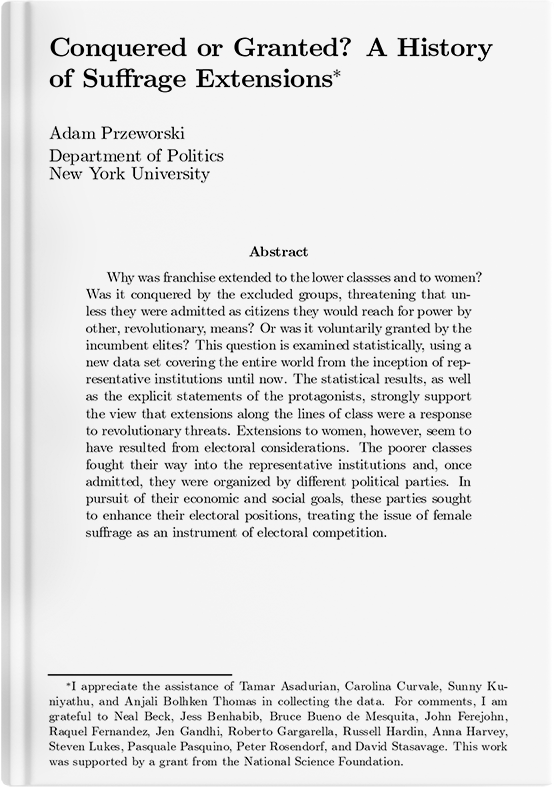
Why was franchise extended to the lower classes and to women? Was it conquered by the excluded groups, threatening that unless they were admitted as citizens they would reach for power by other, revolutionary, means? Or was it voluntarily granted by the incumbent elites? This question is examined statistically, using a new data set covering the entire world from the inception of representative institutions until now. The statistical results, as well as the explicit statements of the protagonists, strongly support the view that extensions along the lines of class were a response to revolutionary threats. Extensions to women, however, seem to have resulted from electoral considerations. The poorer classes fought their way into the representative institutions and, once admitted, they were organized by different political parties. In pursuit of their economic and social goals, these parties sought to enhance their electoral positions, treating the issue of female suffrage as an instrument of electoral competition.
| Asset Type: | Publications |
| Collection: | Foreign Publications |
| Subject: | Franchise, Lower classes, Women, Citizens, Revolution, Voluntary, Incumbent elites, Statistics, Data set, World, Representative institutions, Statistical results, Protagonists, Electoral considerations, Poor class, Political parties, Economic goal, Social goal, Electoral positions, Female suffrage, Electoral competition |
| Author: | Adam Przeworski |
| Publisher: | Cambridge University Press |
| Publication Date: | April 2009 |

